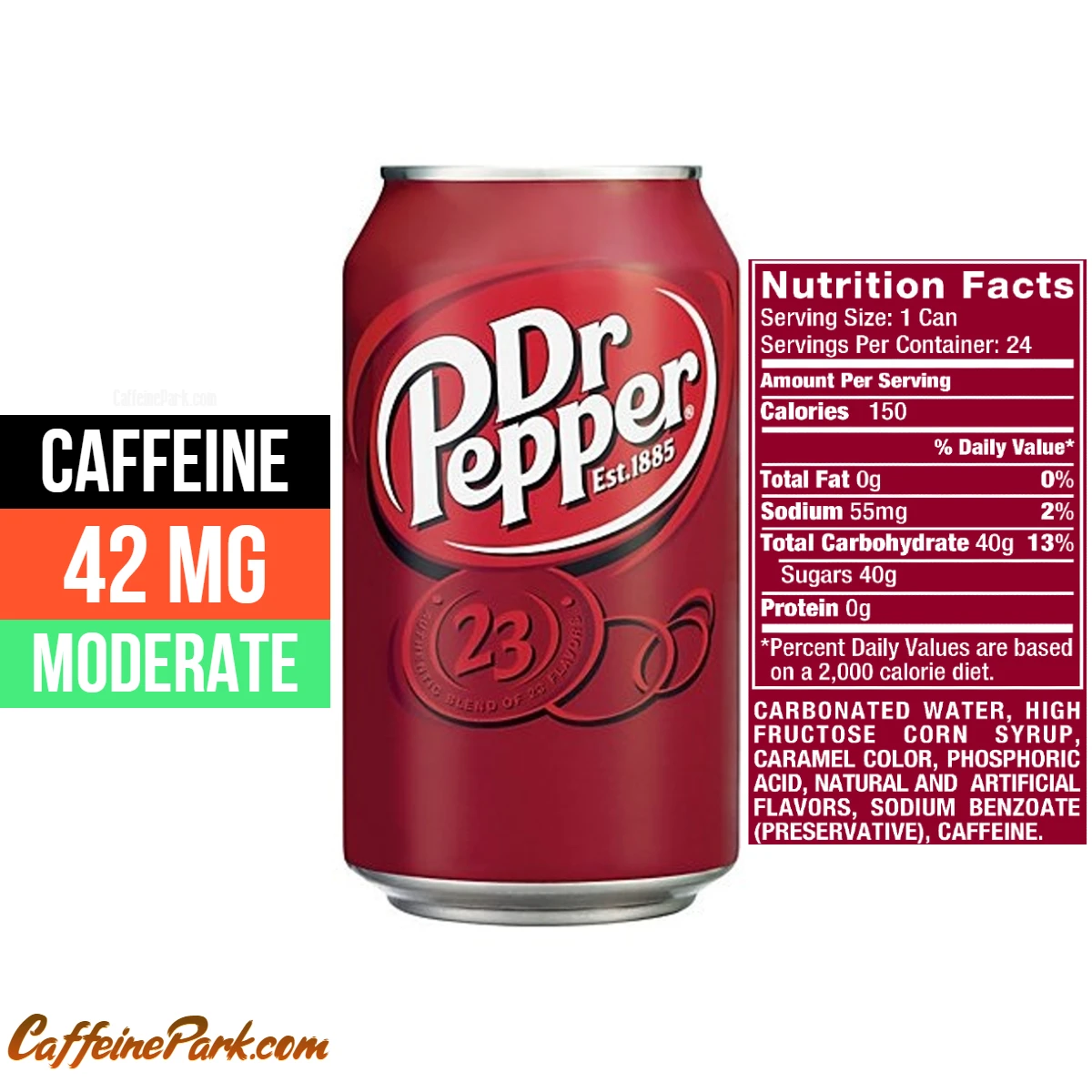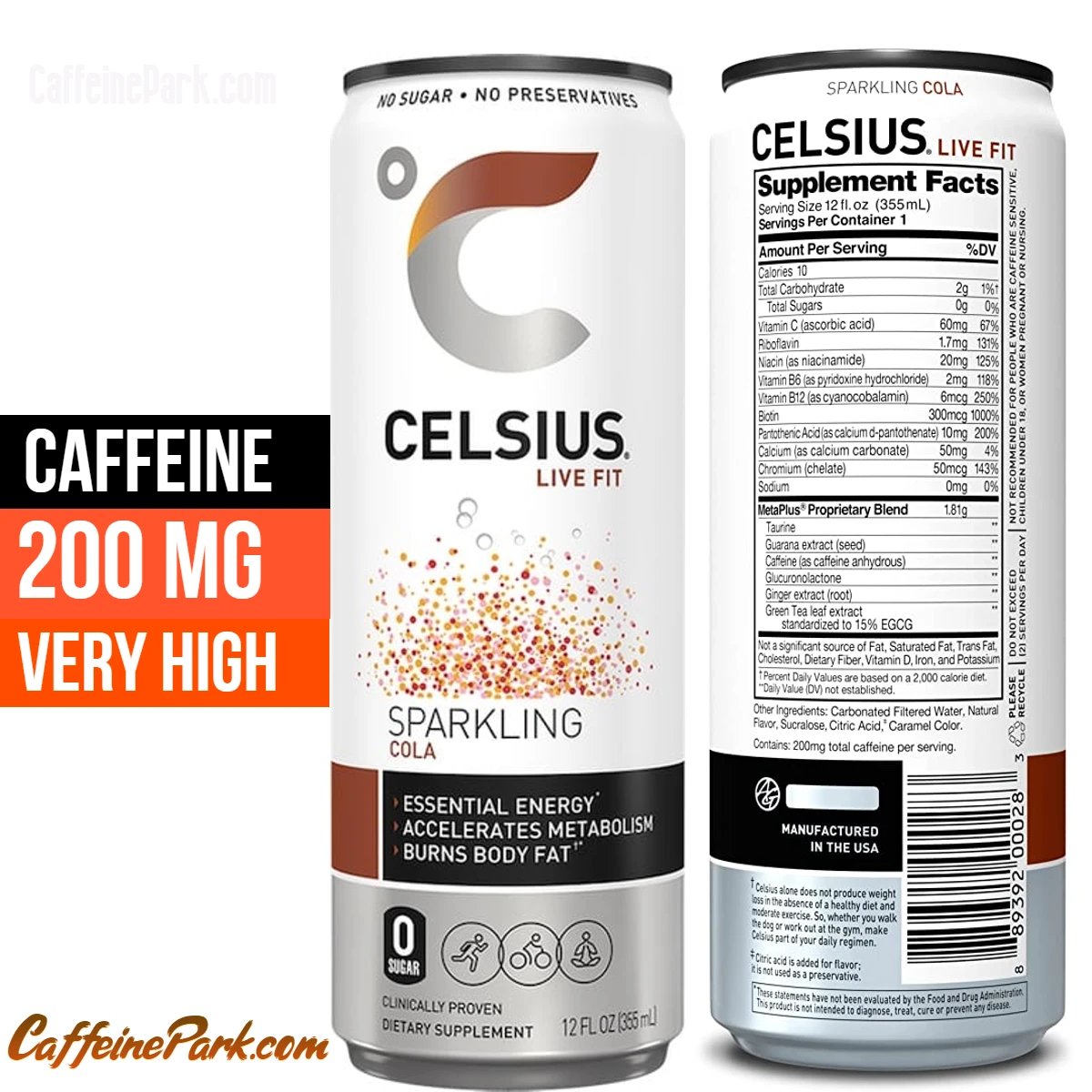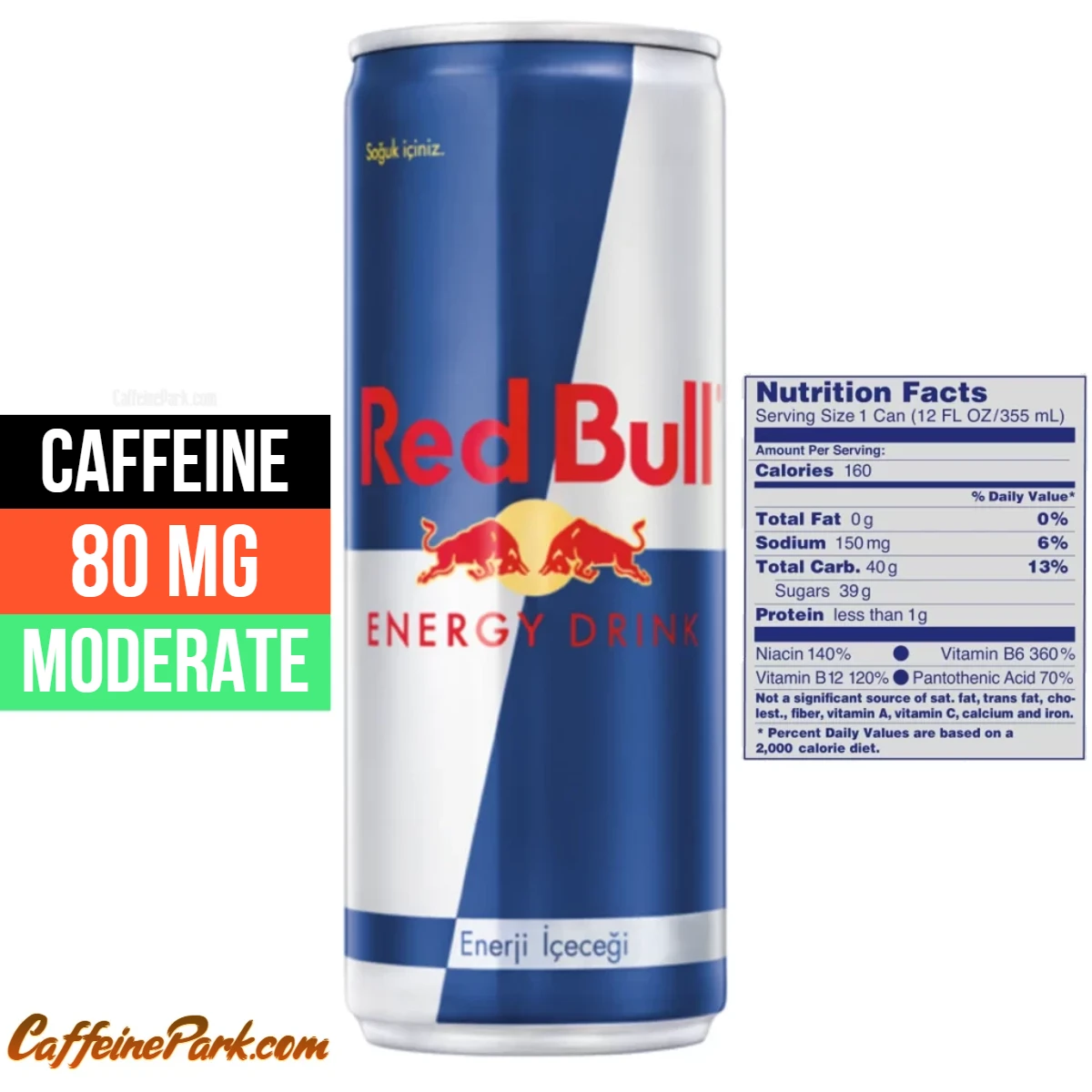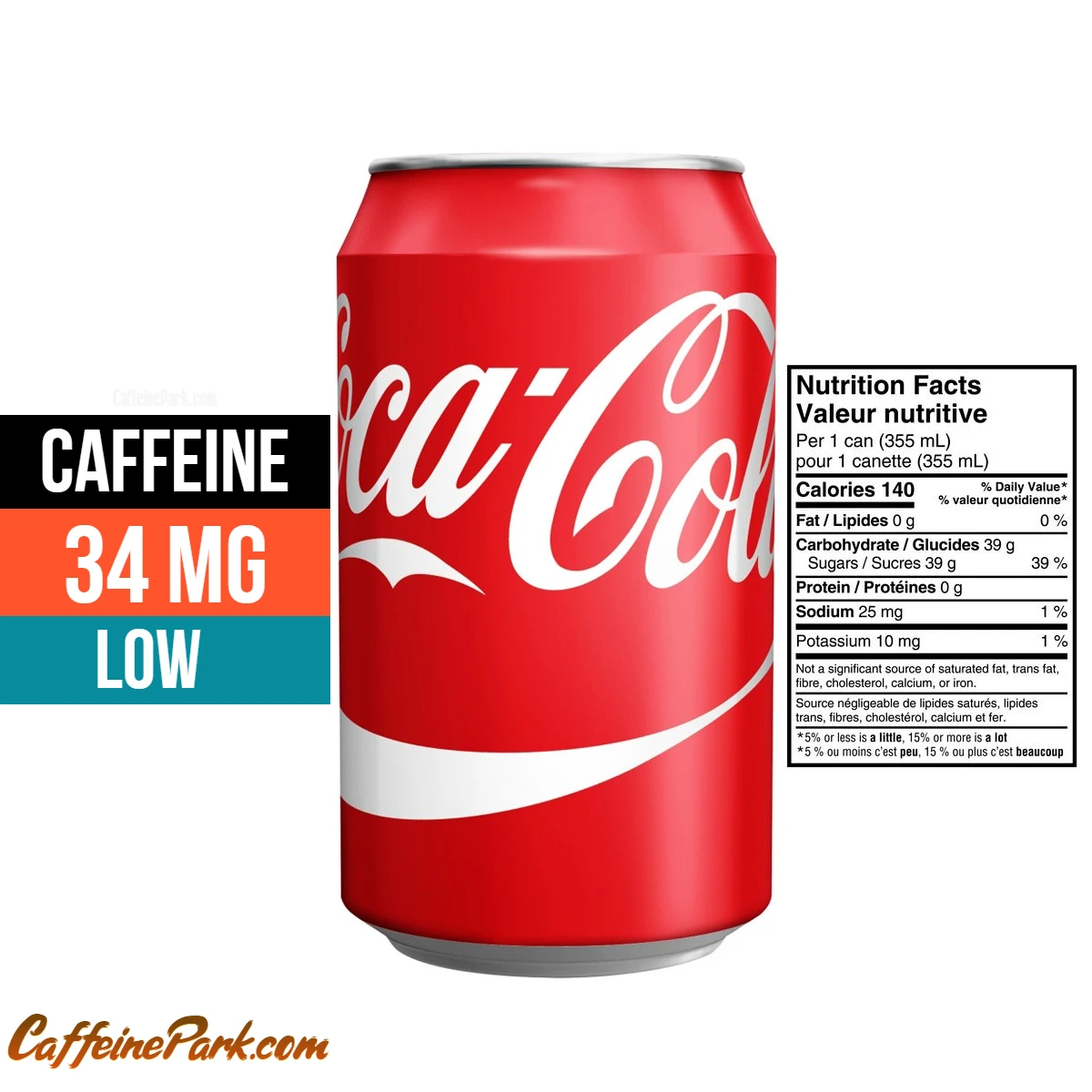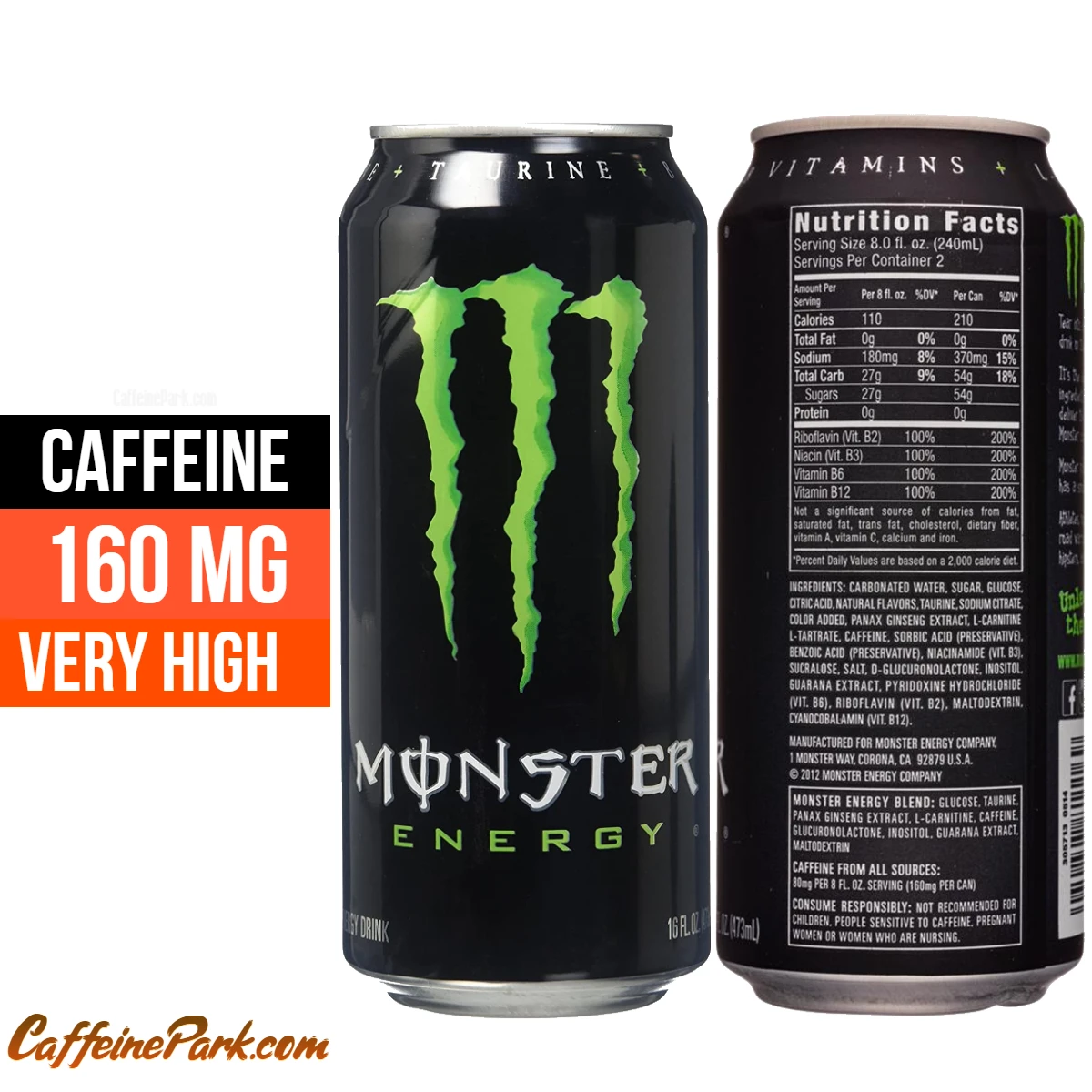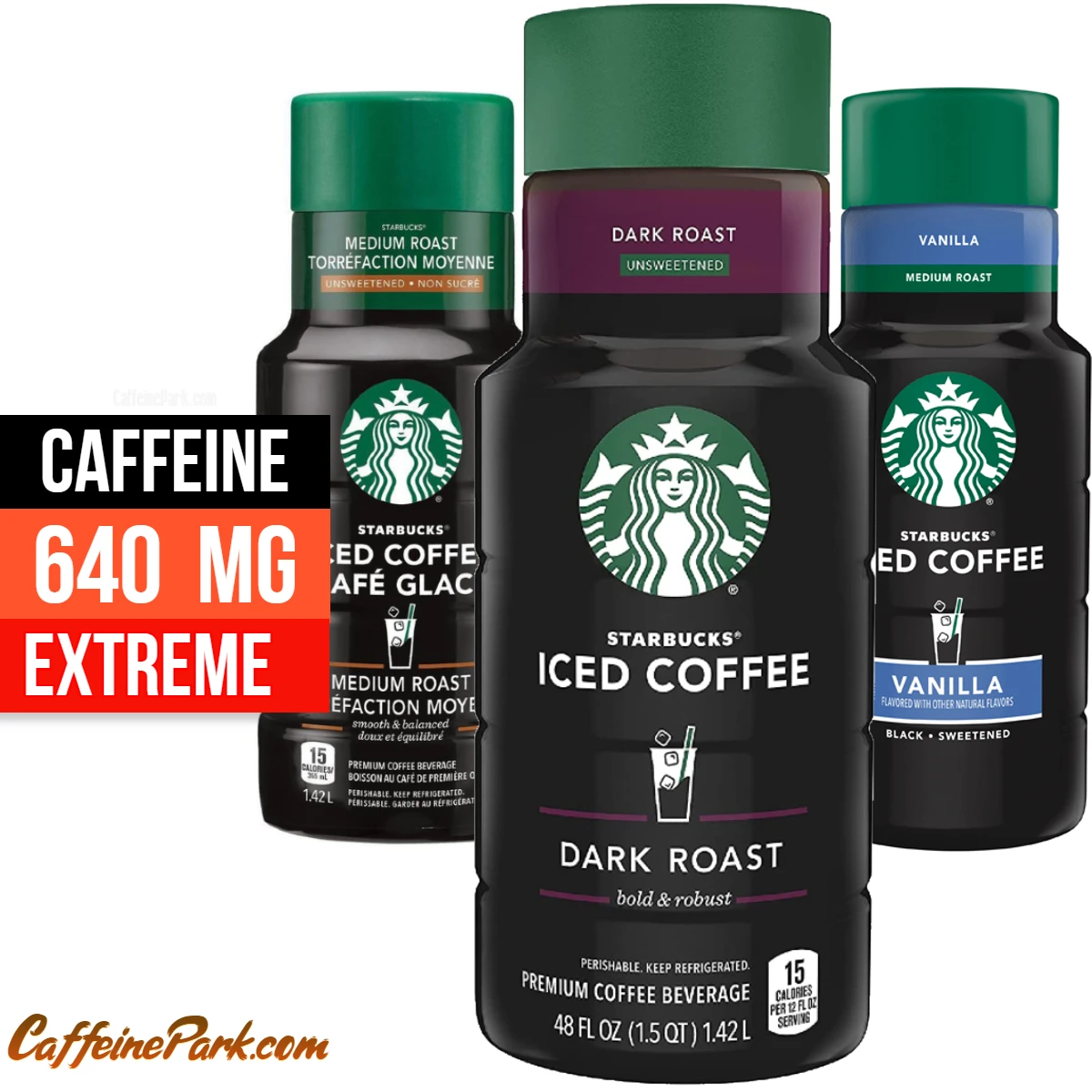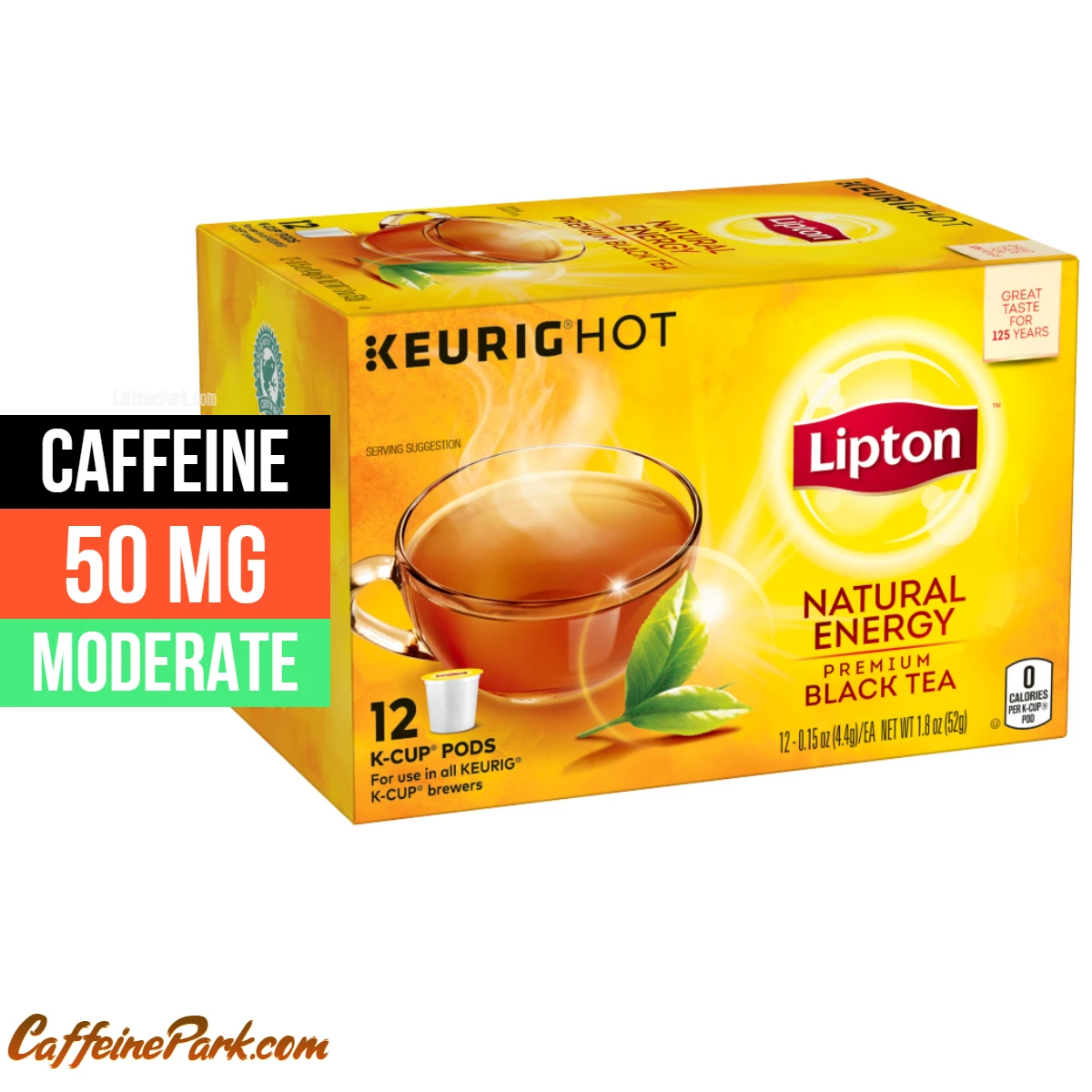
Lipton Tea is the most widely distributed and consumed brand of tea in all of the United States. This popular brand features a wide variety of flavors and types in varying formats, including green tea, white tea, and red tea.
The caffeine content of Lipton tea can vary depending on the type of tea and the brewing method. In general, black tea has a higher caffeine content than green tea, and iced tea has a lower caffeine content than hot tea.
According to the Lipton website, a cup of Lipton black tea made with one tea bag contains about 40-60 milligrams (mg) of caffeine. A cup of Lipton green tea made with one tea bag contains about 20-30 mg of caffeine. A cup of Lipton iced tea made with one tea bag contains about 25-50 mg of caffeine. and It is important to note that these amounts are estimates and may vary based on factors such as the strength of the tea, the brewing time, and the size of the cup. If you are sensitive to caffeine or if you prefer to avoid it, Lipton offers a number of decaffeinated tea options.
Does Lipton Tea have caffeine?
Yes, Lipton Tea contains 55mg of caffeine per 8 fl oz cup and 6.88mg of caffeine per fl oz (23.25mg per 100ml).
| Serving size | Caffeine Amount | Caffeine strength |
|---|---|---|
| 100ml | 23.2 mg | LOW |
| 8 fl oz cup | 55 mg | MODERATE |
| 12 fl oz cup | 82.5 mg | MODERATE |
- Caffeine Amount: 55 mg
- Caffeine strength: MODERATE
- Calories: 0cal
- Serving size: 8 fl oz cup
Types of Lipton Tea
Lipton offers a wide range of tea products, including black tea, green tea, herbal tea, and iced tea.
Black tea is a type of tea that is made from the leaves of the Camellia sinensis plant. It is the most common type of tea and is known for its bold, full-bodied flavor. Lipton’s black tea blends include traditional blends like English Breakfast and Earl Grey, as well as a variety of flavored black teas like Lemon, Mint, and Chai.
Green tea is a type of tea that is made from the leaves of the Camellia sinensis plant, but it is processed differently than black tea. Green tea leaves are steamed or pan-fried shortly after they are harvested, which helps to preserve their natural flavor and color. Green tea is known for its light, delicate flavor and its high levels of antioxidants. Lipton’s green tea blends include traditional green teas like Gunpowder and Matcha, as well as flavored green teas like Peach and Passionfruit.
Herbal tea is a type of tea that is made from a variety of plants, flowers, and herbs. It does not contain any actual tea leaves, and it is caffeine-free. Herbal teas are known for their soothing and aromatic qualities, and they are often used for their medicinal properties. Lipton’s herbal tea blends include a variety of flavors like Chamomile, Lemon Balm, and Peppermint.
Iced tea is a type of tea that is served cold, usually over ice. It is often sweetened and flavored with fruit or other natural ingredients. Lipton’s iced tea products include a variety of flavors like Lemon, Peach, and Raspberry, as well as unsweetened and low-calorie options.
Decaffeinated Lipton Tea
If you are sensitive to caffeine or if you prefer to avoid it, Lipton offers a number of decaffeinated tea options. Decaffeinated tea is made from tea leaves that have had most of the caffeine removed through a special process.
Lipton’s decaffeinated tea products include a variety of black teas, green teas, and herbal teas. These products contain very low levels of caffeine, usually less than 2 mg per serving, and are a good option for those who want to enjoy the taste of tea without the stimulating effects of caffeine.
Caffeine in Varieties of Lipton Tea Bags
Lipton teas come in many different types. While most people drink black or green tea, there are other variations. Red tea has an earthy flavor while white tea has a floral taste. Lipton Black tea does contain more caffeine than any other kind of Lipton tea. You can also see the caffeine content of different Products of Lipton tea, including some flavored varieties.
| Variety of Lipton Tea bag | Caffeine amount per tea bag |
|---|---|
| Lipton Black Tea | 55mg |
| Lipton Black Tea Decaf | 5mg |
| Lipton Green Tea | 35mg |
| Lipton Green Tea Citrus | 25mg |
| Lipton Green Tea Pomegranate/ Cranberry | 25mg |
| Lipton Green Tea Honey | 20mg |
| Lipton Green Tea Mixed Berry | 20mg |
| Lipton Green Tea Lemon Ginseng | 30mg |
| Lipton Green Tea Acai Blueberry (all superfruits) | 22mg |
| Lipton Decaf Green Tea (all flavors) | 4mg |
| Lipton Pyramid Green Tea | 30mg |
| Lipton White Tea Mango Peach | 15mg |
| Lipton White Tea Blueberry Pomegranate | 25mg |
| Lipton Red Tea | 10mg |
| Lipton Pyramid Black Tea Pearl | 30mg |
| Lipton Pyramid Black Tea Tuscan Lemon | 25mg |
| Lipton Pyramid Black Tea Wild Berry | 20mg |
| Lipton Pyramid Black Tea Vanilla Caramel Truffle | 20mg |
| Lipton Tea and Honey To Go Packets | 20mg |
| Lipton Tea and Honey Decaf To-Go Packets | 0mg |
| Lipton Green Tea and Honey To Go Packets | 10mg |
| Lipton Cold Brew Tea Bags | 55mg |
Compare caffeine in Lipton Tea Vs. Popular Tea Brands
| Popular Tea Brands | Serving Size | Caffeine |
|---|---|---|
| Lipton Tea | 8 fl oz | 55mg |
| Bigelow Tea | 8 fl oz | 45mg |
| Fast Lane Black Tea | 8 fl oz | 110mg |
| HICAF Tea | 8 fl oz | 110mg |
| PG Tips Black Tea | 6.78 fl oz | 50mg |
| Zest Highly Caffeinated Tea | 8 fl oz | 150mg |
Review
Lipton is a brand of tea that was founded in the late 1800s by Thomas Lipton. Lipton is now owned by Unilever, a multinational consumer goods company, and is one of the most popular brands of tea in the world.
History of Brand
Thomas Lipton was a grocer and entrepreneur from Glasgow, Scotland who had a passion for tea. In the late 1800s, he traveled to India and Sri Lanka (then known as Ceylon) to source high-quality tea for his stores. He eventually began blending and packaging his own tea blends, which became very popular among his customers.
In 1890, Lipton opened his first tea packing factory in Glasgow, and by the early 1900s, he had established a network of tea plantations in India and Sri Lanka. Lipton’s tea became known for its high quality and affordable price, and the company continued to grow and expand over the next several decades.
In the 1930s, Lipton introduced a new type of tea called “Yellow Label,” which was made from the finest tea leaves and was marketed as a premium product. This brand of tea became very popular and is still sold today.
In the 1950s, Lipton began to branch out into other areas of the food and beverage industry, including coffee, soups, and broths. The company continued to grow and expand, and in 1971, it was acquired by Unilever, a multinational consumer goods company.
Today, Lipton is one of the largest and most well-known brands of tea in the world, with a wide range of products including black tea, green tea, herbal tea, Lipton iced tea, and more.
Taste and Flavor
Lipton tea is generally well-regarded for its taste and flavor. Many people find that the tea has a strong, full-bodied flavor that is well-balanced and not too bitter. The tea leaves are carefully sourced and blended to ensure consistent quality, and the tea bags are designed to allow the tea leaves to fully expand and infuse into the water.
Lipton’s iced tea products are particularly popular, as they are pre-sweetened and offer a refreshing and flavorful alternative to plain water. The company also offers a range of flavored teas, including black teas like Lemon, Mint, and Chai, and green teas like Peach and Passionfruit.
Health Benefits
Tea, including Lipton tea, is a natural source of antioxidants, which are compounds that help to protect the body from the damaging effects of free radicals. Tea is also a good source of polyphenols, which are plant-based compounds that have been shown to have a number of health benefits.
Some studies have suggested that regular tea consumption may help to reduce the risk of certain health conditions, including heart disease, stroke, and certain types of cancer. Tea is also a good source of hydration, and it can help to improve mental alertness and focus.
Product Quality
Overall, Lipton tea is known for its good quality and affordable price. The tea leaves are sourced from a variety of locations, including India and Sri Lanka, and are carefully blended and packaged to ensure consistent flavor and quality. Lipton’s tea bags are made from a blend of natural fibers and are designed to allow the tea leaves to fully expand and infuse into the water.
Many people find that Lipton tea has a strong, full-bodied flavor that is well-balanced and not too bitter. The tea is also widely available and can be found in supermarkets, convenience stores, and online retailers.
Range of Products
Lipton offers a wide range of tea products, including traditional black tea blends like English Breakfast and Earl Grey, as well as a variety of flavored black teas like Lemon, Mint, and Chai. The company also has a range of green teas, including traditional blends like Gunpowder and Matcha, as well as flavored options like Peach and Passionfruit.
In addition to hot tea, Lipton also offers a range of iced tea products, including sweetened and flavored teas like Lemon, Peach, and Raspberry, as well as unsweetened and low-calorie options. The company also has a range of herbal teas, including flavors like Chamomile, Lemon Balm, and Peppermint.
Packaging and Sustainability
Lipton tea is packaged in a variety of formats, including traditional tea bags, pyramid-shaped tea bags, and loose-leaf tea. The tea bags are made from a blend of natural fibers and are designed to allow the tea leaves to fully expand and infuse into the water. The pyramid-shaped tea bags have a more modern design and are made from a biodegradable material.
Lipton is committed to sustainability and has a number of initiatives in place to reduce its environmental impact. The company works with its suppliers to promote sustainable agriculture practices, and it has invested in renewable energy sources and water conservation efforts. In addition, Lipton has launched a number of eco-friendly packaging initiatives, including using recycled materials and designing packaging that is easy to recycle.
Customer Reviews
Lipton tea generally has positive customer reviews, with many people noting its good flavor and affordability. Some reviewers have commented that the tea has a strong, full-bodied flavor that is well-balanced and not too bitter and that it is a good value for the price.
However, some reviewers have noted that the tea bags can be a bit fragile and may break or tear easily and that the tea can sometimes have a slightly grassy or astringent taste. Overall, however, most people seem to be satisfied with the quality and flavor of Lipton tea.
Availability and Price
Lipton tea is widely available and can be found in supermarkets, convenience stores, and online retailers. The tea is generally affordable and is a good value for the price. Lipton tea is available in a variety of packaging formats, including traditional tea bags, pyramid-shaped tea bags, and loose leaf tea. The company also offers a range of tea gift sets and boxes, which make for a thoughtful and practical gift.
Prices for Lipton tea can vary depending on the type of tea, the packaging format, and the retailer. A box of traditional tea bags, for example, may cost around $3-$5, while a tin of loose leaf tea or a gift set may cost more. Iced tea products and specialty blends may also be more expensive.
It is worth noting that prices for Lipton tea can vary by region, and it may be more expensive in some areas than in others. It is also worth shopping around to compare prices and to look for deals and discounts, as Lipton tea is often available at discounted prices at certain times of the year or when purchased in bulk.
Sustainability
Lipton is committed to sustainability and has a number of initiatives in place to reduce its environmental impact. The company works with its suppliers to promote sustainable agriculture practices, and it has invested in renewable energy sources and water conservation efforts. In addition, Lipton has launched a number of eco-friendly packaging initiatives, including using recycled materials and designing packaging that is easy to recycle.
One of Lipton’s key sustainability initiatives is the Lipton Rainforest Alliance (LRA) program, which aims to protect and conserve the rainforests where the company sources its tea. The LRA program works with farmers to promote sustainable agriculture practices and to improve the livelihoods of local communities. To date, the LRA program has reached over 100,000 farmers in more than 20 countries.
Customer Service
Lipton has a customer service team that is available to answer questions and address any concerns or issues that customers may have. The company can be contacted by phone, email, or through its website, and it has a number of resources available, including FAQs and product information.
In general, Lipton has a good reputation for customer service and is known for being responsive and helpful. If you have any issues with Lipton tea or if you have any questions or concerns, the company’s customer service team is available to assist you.
Final Thoughts
Lipton is a well-known and widely available brand of tea that offers a wide range of products including black tea, green tea, herbal tea, and iced tea. The tea is known for its good quality and affordable price, and it has generally positive customer reviews. Lipton is also committed to sustainability and has a number of initiatives in place to reduce its environmental impact. If you are looking for a reliable and affordable brand of tea, Lipton is a good choice to consider.
FAQs
Lipton Tea contains approximately 55mg of caffeine per 8 fluid ounces (fl oz) cup.
The caffeine content in Lipton Tea can vary slightly depending on factors such as brewing time and tea type. It’s always a good idea to check the label or packaging for specific information regarding the caffeine content of a particular Lipton Tea product.
Lipton Tea has an average caffeine content of about 6.88mg per fluid ounce (fl oz), which is equivalent to approximately 23.25mg per 100ml.
Yes, Lipton offers a variety of decaffeinated tea options for those who prefer to limit their caffeine intake. These decaf teas go through a process to remove most of the caffeine while retaining the flavor.
Caffeine sensitivity varies among individuals, and some people may be more sensitive to its effects than others. If you are particularly sensitive to caffeine or have any health concerns, it’s advisable to consult with a healthcare professional for personalized guidance.
Lipton Tea contains antioxidants and is hydrating, making it a potentially healthy beverage choice. However, specific health benefits may vary depending on the type of tea and individual factors. It’s always recommended to maintain a balanced and varied diet for overall well-being.
While you can’t directly adjust the caffeine content in Lipton Tea, you can control the brewing time and tea strength, which can impact the overall caffeine extraction. Brewing for a shorter time or using fewer tea leaves may result in a slightly lower caffeine content in your cup.
Is Lipton Tea High in Caffeine?
The caffeine content of Lipton tea can vary depending on the type of tea and the brewing method. In general, black tea has a higher caffeine content than green tea, and iced tea has a lower caffeine content than hot tea.
According to the Lipton website, a cup of Lipton black tea made with one tea bag contains about 40-60 milligrams (mg) of caffeine. This is considered to be a moderate amount of caffeine, similar to what is found in a cup of coffee. A cup of Lipton green tea made with one tea bag contains about 20-30 mg of caffeine, which is considered to be a low to moderate amount. A cup of Lipton iced tea made with one tea bag contains about 25-50 mg of caffeine, which is also considered to be a moderate amount.
It is important to note that these amounts are estimates and may vary based on factors such as the strength of the tea, the brewing time, and the size of the cup.
Can I Get Decaffeinated Lipton Tea?
Yes, Lipton offers a number of decaffeinated tea options. Decaffeinated tea is made from tea leaves that have had most of the caffeine removed through a special process. Lipton’s decaffeinated tea products include a variety of black teas, green teas, and herbal teas. These products contain very low levels of caffeine, usually less than 2 mg per serving, and are a good option for those who want to enjoy the taste of tea without the stimulating effects of caffeine.
Can Caffeine in Tea Affect My Sleep?
Caffeine can affect sleep in some people, as it is a stimulant that can cause the body to feel more alert and awake. If you are sensitive to caffeine or if you have trouble sleeping, it may be best to avoid consuming caffeine close to bedtime.
It is worth noting that the caffeine in tea is absorbed more slowly than the caffeine in coffee, and it may not have as strong of an effect on sleep. However, if you are sensitive to caffeine or if you are trying to cut back on your caffeine intake, it may be best to choose decaffeinated tea or to limit your tea consumption to the morning and early afternoon.
Is Lipton Tea Safe for Children?
Tea is generally considered to be safe for children to consume, as long as it is consumed in moderation. However, it is important to be aware that tea, like other caffeinated beverages, can contain caffeine, which can be harmful if consumed in large amounts.
The American Academy of Pediatrics recommends that children and adolescents consume no more than 100 mg of caffeine per day. A cup of Lipton black tea made with one tea bag contains about 40-60 mg of caffeine, while a cup of Lipton green tea made with one tea bag contains about 20-30 mg of caffeine. A cup of Lipton iced tea made with one tea bag contains about 25-50 mg of caffeine.
If you are considering giving tea to a child, it is a good idea to talk to your healthcare provider about the appropriate amount for their age and weight. Children and adolescents may be more sensitive to the effects of caffeine, and it is important to monitor their intake to ensure that they are not consuming too much.
How Much Tea Can I Drink Without Affecting My Sleep?
The amount of tea that you can drink without affecting your sleep will depend on a number of factors, including your age, weight, and sensitivity to caffeine. In general, it is recommended that adults consume no more than 400 mg of caffeine per day.
To put this in perspective, a cup of Lipton black tea made with one tea bag contains about 40-60 mg of caffeine, while a cup of Lipton green tea made with one tea bag contains about 20-30 mg of caffeine. A cup of Lipton iced tea made with one tea bag contains about 25-50 mg of caffeine. It is important to pay attention to your body’s response to caffeine and to consume it in moderation.
How Can I Reduce the Caffeine Content of My Tea?
There are a few ways that you can reduce the caffeine content of your tea:
- Use less tea: Using less tea will result in a weaker tea with less caffeine. You can try using fewer tea bags or using less loose-leaf tea in your brew.
- Brew for a shorter time: The longer that tea is brewed, the more caffeine it will contain. To reduce the caffeine content of your tea, try brewing it for a shorter time.
- Use cold water: Cold water extracts less caffeine from tea leaves than hot water. To reduce the caffeine content of your tea, try brewing it with cold water.
- Choose a lower-caffeine tea: Some teas naturally contain less caffeine than others. Green tea, for example, typically has a lower caffeine content than black tea. If you want to reduce your caffeine intake, try switching to a lower-caffeine tea like green tea or herbal tea.
Is Lipton Tea Safe to Drink During Pregnancy?
Tea is generally considered to be safe to consume during pregnancy, as long as it is consumed in moderation. However, it is important to be aware that tea, like other caffeinated beverages, can contain caffeine, which can cross the placenta and enter the fetus.
It is recommended that pregnant women consume no more than 200 mg of caffeine per day. A cup of Lipton black tea made with one tea bag contains about 40-60 mg of caffeine, while a cup of Lipton green tea made with one tea bag contains about 20-30 mg of caffeine. A cup of Lipton iced tea made with one tea bag contains about 25-50 mg of caffeine.
If you are pregnant or planning to become pregnant, it is a good idea to talk to your healthcare provider about your caffeine intake. They can help you to determine the appropriate amount of caffeine for you based on your individual needs and circumstances.
Read More:
